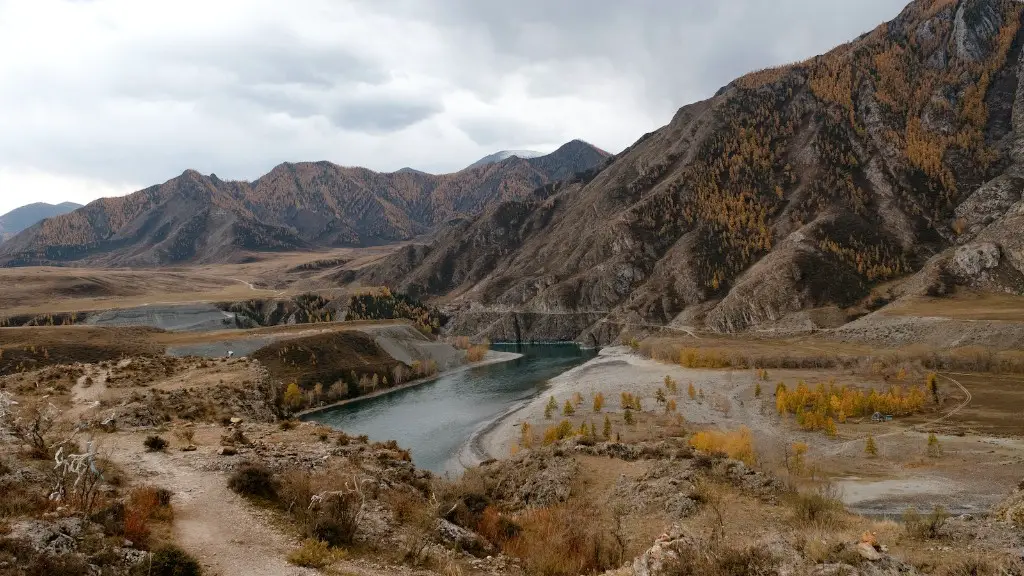The Nile River has played a major role in ancient Egyptian history for centuries. It served as a source of sustenance, transportation, and a source of inspiration for ancient Egyptians. Every Egyptian Pharaoh, from the Old Kingdom to the Ptolemaic period, kept the Niles’ importance central in their rule. It was essential for the agricultural base, providing water to crops and animals, enabling population growth and expansion.
The river was a key resource in providing water to irrigate lands, letting the expansion and population growth of ancient Egypt. The Nile Valley allowed the continual availability of water, the river was the main source of most of the water in ancient Egypt. It was the only source of water that kept the country going and let the population flourish. Ancient Egyptians considered the Nile as the main source of their livelihood, for it gifted them with its slippery banks on which to settle, as well as with its waters which allowed for its soils to become highly fertile and thus sustained their populations.
Backed by the Nile, the Egyptians made more efficient use of scarce agricultural land, leading to a prolonged period of farmable land. The Nile provided resources of fish, oxen, and papyrus. Farming increased greatly as well due to the higher efficiency of the river’s water. This surplus of food was essential in providing a base for the Egyptians’ expansion of their population and the rise of their civilization.
The Nile was key in the transportation of the Egyptian people. In ancient times the river was perfect for merchants’ settlements, making it possible for them to exchange goods and travel over the river. In addition, it allowed Egyptians to easily transport their goods, trade with other cultures, and even raid their neighbours.
The Nile was incredibly influential in the religion of Ancient Egypt. Its waters were regarded as a source of life and fertility leading to the worship of the Nile. Ancient Egyptians believed the river’s flooding benefited the land and replenished it, an example of this being the annual flooding of the Nile. This implies that the habitants of ancient Egypt viewed the Nile as a symbolic representation of life, strength and power. As such, priests of the religion even referred to the river as the magical, ‘Gift of the Nile’.
The river was also known for being the center and origin of the ancient Egyptian civilization. The Nile still remains the same life source it has been for millennia, every year a water level rises, floods the banks and replenishes it.
The Impact of the Nile on Agriculture and Trade
The river enabled the increase of the agricultural activity in ancient Egypt. This, in turn, provided a greater surplus of goods for trade. With the help of the River, the Egyptians invented irrigation systems, in which water can be provided to agricultural areas regularly. This allowed for the development of agricultural land, and for the growth of a large population. Additionally, the river provided goods that could be used for trade: papyrus and animals.
The Nile provided a means for trade with other cultures; goods from other parts of the world made their way to Ancient Egypt. As goods and goods’ knowledge would spread between cultures, they absorbed different techniques and ideas in economics, engineering and other areas of learning. This provided Ancient Egypt with goods that would be of great need and importance, such as arms and works of art.
The river provided ideal opportunities to merchants. The navigability of the river made trade with other parts of the world much easier. This, in turn, provided great chances to make a profit in the exchange of goods. With its immense expanse and its ability to transport goods to and from many places, the river offered great potential for the ancient Egyptians. It provided them with the ability to access many different markets, allowing for the development of a successful trading empire.
In addition to providing a chance for trade, the River was also used in the transportation of goods. Egyptians would use the river to transport goods from one place to another. This made it easier for merchants to move their goods around, along with bringing increased economic activity.
The Nile and Its Spiritual Significance
The Nile has had a great impact on the spiritual aspect of ancient Egyptians. Ancient Egyptians believed the river to be a source of life and fertility, leading to its worship among the dwellers of the region. For example, the annual flooding of the river was seen as a blessing, a symbol of renewal that they used to celebrate their patron gods. It was also seen as a sign of great power and strength, since it was essential in providing water to the farmers and animals.
Ancient Egyptians also believed that the god Hapi was the Lord of the Nile and the one responsible for the inundations of the river’s banks. As such, they paid tribute to him out of fear and respect. Furthermore, the ancient religion of worshiping the gods and goddesses connected to the river, is still practiced today in some parts of the world.
In the Egyptian culture and mythology, the River was even seen as a source of eternity and immortality and was related to stories concerning the rise of the dead and the afterlife, as the river waters were seen to have supernatural powers.
The Nile has also been key in art and literature during the ancient times. The river’s association to fertility is seen in pieces of literature which describe the Nile as a source of wealth and abundance. This is seen in the works of Ancient poets, who wrote praising literature of the Nile and its importance in the lands of ancient Egypt.
The Nile has been the source of great inspiration for ancient Egyptians and continues to be so today. Writers, poets and artists, to this day, have used the river in their works, reflecting upon its vital importance to their country.
The Physical Characteristics of the Nile
The physical characteristics of the river have always been quite important. The river flows from Lake Victoria in Uganda to the Mediterranean Sea and is the longest river in Africa and in the entire world. It is approximately 6,650 kilometers in length and, as noted above, it was the only source of water in ancient Egypt.
The importance of the river is also seen in its geographical position. It flows through Egypt and is a major conduit for life and trade. This means that the river played a large role in the civilizations of ancient Egypt, since it allowed them to be connected to distant parts of the world.
The Nile is also composed of two major rivers, the Blue Nile and the White Nile, of which the former is more important for the ancient Egyptians and is the source of most of the river’s water. It is also the main source of the annual flooding which provided the fertility to the lands of ancient Egypt. As such, the White Nile has been and continues to be an important source of water in Egypt.
The Nile is also rich in aquatic life. Its species range from native birds such as the Ibis to reptiles such as the Nile Monitor. This abundance of wildlife made it easier for the Egyptians to feed their people and to use their natural resources for their own gain.
The Enduring Legacy of the Nile
The river is still a major resource in modern times, as it was in Ancient times. In modern times, the Nile’s water is used for irrigation and electricity production. The river is also used as a form of transportation and is a great avenue for connecting distant parts of the world.
The importance of the Nile has been felt since ancient times and its legacy is still felt in the modern world. It is still seen as a symbol of life and fertility and is an important source of water for the people of Egypt. The river’s importance was vital to the survival of the ancient Egyptians and still plays a major role in modern Egyptian society.
The Nile is still a major source of inspiration for many people. Poets, writers, and artists continue to be inspired by its beauty and greatness. The legacy of the Nile is still relevant to this day, showing that its importance will never be forgotten.
The Interaction of the Nile with Human Civilizations
The Nile has played an important role in the interaction between humans and civilizations throughout its existence. Its interactions with the ancient Egyptian civilization have been well documented. Its importance in ancient Egypt as a source of sustenance, transportation, and inspiration saw it play a pivotal role in the rise of one of the world’s most powerful civilizations.
The Nile also saw other civilizations interact with the Ancient Egyptians. The navigability of the river saw a great deal of trade take place with the likes of the Assyrian Empire, the Phoenicians, Indians, Persians and Mediterranean peoples.
Trade through the Nile has enabled different cultures to interact and share their resources. This has allowed for new ideas and thought processes to be created and for societies to benefit from the exchange of goods and knowledge.
The degree of influence the Nile has had with different civilizations has been seen in its use as a divider between the old and new worlds, as well as its impact on economies, cultures, and religions. It was the centerpiece for religious rituals and for declaring borders, as well as a mark for prosperity and fertility.
The Nile has been a source of communication and transportation for centuries and is still the lifeblood of many in the region. Its rise and fall remains a focal point in many cultures, as it continues to provide people with a livelihood, a form of transportation, and a source of inspiration.





